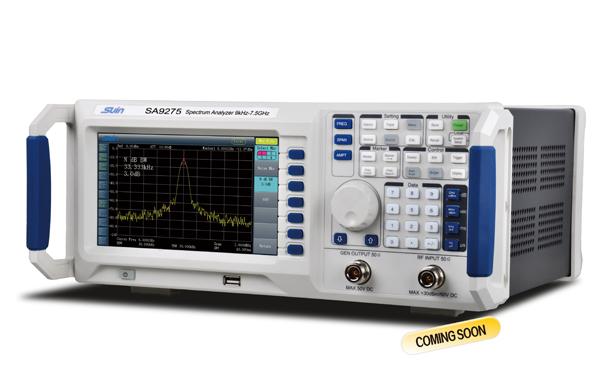

The main function of the Spectrum Analyzers System is to display the spectral characteristics of the input signal in the frequency domain. There are two types of spectrum analyzers depending on the signal processing method; Real-Time Spectrum Analyzer from the Spectrum Analyzers Supplier and Sweep-Tuned Spectrum Analyzer. The function of the real-time frequency analyzer is the same. The signal amplitude of the frequency domain is displayed instantaneously. The working principle is that the spectrum analyzer from the Spectrum Analyzers Manufacturer has corresponding filters and detectors for different frequency signals, and then transmits the signals to the CRT or liquid crystal via the synchronous multiplex scanner. The display on the display instrument has the advantage of displaying the transient response of periodic random waves. The disadvantage is that the price is limited and the performance is limited by the bandwidth range. The number of filters and the maximum multiplex exchange Time (Switching Time).

Jul. 10, 2025
Common Uses and Types of Signal GeneratorsJun. 13, 2025
Power Quality Analyzers: SA2100, SA2200, and SA2300 – Which One Fits Your Workflow?May. 14, 2025
Stopwatch Calibrator Uses in Aerospace, Automotive and Labs